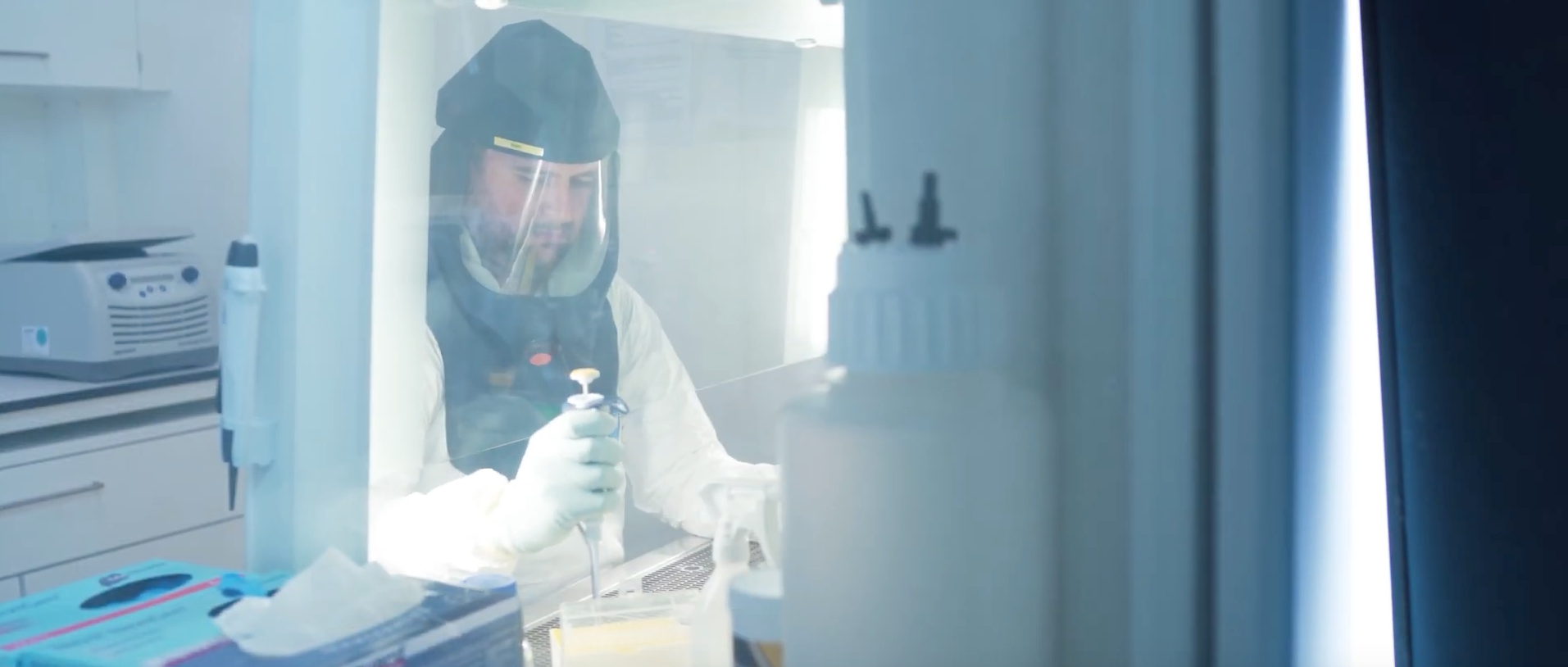Consequences of SARS-CoV-2 infection in cardiovascular disease

Shortness of breath and lung damage are key symptoms of severe Covid-19 disease. Many patients also simultaneously experience cardiovascular disease, kidney failure and central nervous system disorders. However, too little is known about the mechanisms underlying the (long-term) vascular damage caused by Covid-19.
Background
Damage to the cardiovascular system is a significant determining factor of mortality rates among Covid-19 patients. To understand the connections between cardiovascular disease and Covid-19, it is important to elucidate the mechanisms underlying SARS-CoV-2 infection in the cells of the vascular wall. SARS-CoV-2’s key point of entry is a molecule called ACE2, which is found in vascular wall cells in all organs. Knowing how SARS-CoV-2 infection particularly impacts the vasculature is key to characterizing various clinical symptoms and developing new treatments.
Aim
Our aim was to investigate the effects of SARS-CoV-2 infection in vascular wall cells, including cells of the blood-brain barrier and heart muscles. Once these cells have been infected, we would use gene expression profiling to investigate the immune system’s inflammatory response and virus-induced changes. The more complex effects of SARS-CoV-2 infection that affect the entire body would be researched in zebra fish and mice. Animal experiments would enable us to investigate the entire cardiovascular system and gain a better understanding of Covid-19.
Results
We used human endothelial cells grown in vitro under physiological flow to evaluate the interaction of SARS-CoV-2 with the vascular wall. When exposed to SARS-CoV-2, human endothelial cells did not show productive viral replication. Yet, treating human endothelial cells with SARS-CoV-2 spike protein induced increased and sustained expression of cell-surface molecules related to endothelial cell activation. The vascular inflammatory effect of SARS-CoV-2 can thus be replicated in vitro. Using in vitro models of the human blood-brain barrier and blood-cerebrospinal fluid barrier we found that iPSC-derived brain microvascular endothelial cells and brain pericyte-like cells are refractory to SARS-CoV-2 infection possibly due to the absence of ACE2 expression. In contrast, choroid plexus epithelial cells, forming the blood-cerebrospinal fluid barrier, were productively infected with SARS-CoV-2 in an ACE2-dependent way. Zebrafish were used to perform toxicological assessment of over 150 compounds repurposed or suggested for repurposing in Covid-19 treatment. Most compounds, with the exception of Baricitinib, led to mild developmental defects in zebrafish larvae at clinically relevant concentrations. Aiming to generate models to investigate cardiovascular consequences of Sars-CoV-2 infection, we generated a zebrafish transgenic line overexpressing human ACE2 in a tissue specific manner to study what happens if infection occurs in heart muscle cells or blood vessels. In addition, we generated two different mouse models prone to develop cardiovascular disease and fed them a Western-type diet for 4 or 12 weeks. Some mice were challenged with spike protein binding to ACE2 while others were directly exposed to SARS-CoV-2. Spike-treated female, but not male mice, revealed persisting inflammation characterized by an increased frequency of leukocytes and inflammatory cytokines in blood. In addition, SARS-CoV-2 infected females displayed enhanced alveolar macrophage counts in the lungs. While the extent of atherosclerotic lesions was not affected in any of the groups, SARS-CoV-2 infected females also displayed enhanced inflammation of the arterial endothelium.
Specific contribution to tackle the current pandemic
We have established novel in vitro and in vivo models to explore productive infection of SARS-CoV-2 in vascular cells including endothelium, smooth muscle cells, pericytes and cells of the blood-cerebrospinal fluid barrier. These models allow to follow up on cell-specific and systemic effects of SARS-CoV-2 infection to better understand its detrimental function on the vasculature and subsequent events like thrombotic complications.
Original title
Unravelling consequences of SARS-CoV-2 mediated inflammatory immune responses in heart and vasculature
